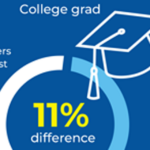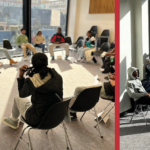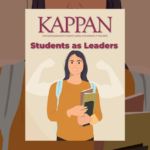In this week’s newsletter: Nearly half a million students shut out in Los Angeles. A blockbuster Supreme Court decision. Refocusing education coverage on parents’ real priorities. Journalists respond to Erica Green’s departure from the education beat. And a Congressional hearing on school closures during COVID is coming next week.
500,000-STUDENT FURLOUGH
The big story of the week
The big story of the week is the three-day interruption in the education of nearly 500,000 Los Angeles students. Three years after the start of a long series of pandemic interruptions, LAUSD’s school staff and teachers called a three-day strike over alleged unfair labor practices on the part of the district — sending kids home and making parents scramble for food and childcare.
Among a sea of media coverage, some of the best pieces came from local outlets with team coverage including the LA Times, LAist (formerly KPCC) public radio, and KCRW public radio. Some of my favorite pieces: an LAist look at how families with SPED students fared, and the LA Times coverage focusing on parents’ dismay at the interruption, struggles to secure food and childcare, and the brutally high housing costs facing school staff.
Over all, it seemed like there was more parent- and kid-focused coverage, which has been lacking in the past. However, I still want more: stories about kids left home alone while mom and dad go to work — and about self-inflicted school interruptions even after the disastrous effects of pandemic shutdowns. You’d think that the pandemic would have changed things.
Other big stories of the week:
📰 SCOTUS SPED DECISION: In a case with far-reaching impact on students with disabilities, the Supreme Court sided with a Michigan student who is deaf and who sued his public school for failing to provide him an adequate education (USA Today, AP, Washington Post, Detroit Free Press). Education writer Laura McKenna describes the precedent the decision may have set: “If Miguel can sue for damages, every special education student who failed to receive crucial therapy or educational instruction can sue for damages.”
📰 RURAL DIVISIONS OVER CHOICE: School choice has always been a thorny issue, but it is becoming even thornier now as states establish new laws and policies that will give parents greater choice (KCUR, Orlando Sentinel). An issue many see as divided along party lines, the school choice debate is actually much more complex, with many from the rural right against it (Des Moines Register, NBC News, Christian Science Monitor).
📰 RECONSIDERING SROS AND RESTORATIVE JUSTICE: A student shot two deans at Denver’s largest high school on Wednesday, prompting the district to cancel all Friday classes and the superintendent to assign one armed officer to each high school in the district, an action which the school board later approved (Chalkbeat CO, Colorado Sun, Denver Post). It’s part of a larger debate about whether — and how — police should be reintroduced to schools and how justice should be approached (Washington Post, Las Vegas Review Journal). At least one school safety expert believes that daily searches like the one being employed in Denver should only be performed by armed officers (New York Times).
📰 MATH WARS: Forget reading for now. In California, the math wars are raging — and now they’ve gone to court. San Francisco parents are challenging a new math placement policy that delays algebra until 9th grade (SF Examiner). The method, meant to increase equity, has many fans as well as opponents (EdWeek, Chronicle of Higher Ed).

COVERING CULTURE WARS
The best education journalism of the week
The best education story of the week is Hannah Natanson’s Washington Post story, Covid changed parents’ view of schools — and ignited the education culture wars, which tells the story of tense relations among parents and school officials in Mentor, Ohio.
The piece treats concerned parents as human beings, includes conservative successes and setbacks, and weaves in concerns about academic performance. It’s also full of firsthand reporting and is written in a tone that I’d describe as sober rather than sensationalistic.
If you’re going to cover the school culture wars — which I’ve argued are taking attention away from more fundamental education issues — this is how you should do it. The piece is steady and calm, without downplaying the very real tensions.
For two other pieces that deepen our understanding and attempt to refocus attention towards parents’ real concerns, see also Kayla Jimenez’s USA Today story Parents want more say in how schools run. Do emerging bills ignore the real crisis? and Diana Lambert’s EdSource piece, Are Kids Collateral Damage In California Culture Wars?
RUNNERS UP:
🏆 ‘I can’t lose any more time’: Migrant children suffer months, years of education loss (AZ Central)
🏆 Activists skirt book bans with guerrilla giveaways and pop-up libraries (NPR)
🏆 Inside a Brooklyn School Teaching the Course That Florida Banned (New York Times)
🏆 Why Some of Black Chicago’s Leaders Are Endorsing the White, Tough-on-Crime Guy for Mayor (Slate)
🏆 Bridge Saw Big Profits in African Education. Children Paid the Price. (The Intercept)
🏆 The Unraveling of the U.S. News College Rankings (Wall Street Journal)
🏆 Criminal behavior rises among those left behind by school lotteries (Hechinger Report)
🏆 Why the 100-Point Grading Scale Is a Stacked Deck (Edutopia)
HOW TO COVER INNOVATIONS
Our latest columns and commentary
More and more news outlets feature stories about innovations and progress that some schools and districts are making. But too much of it leaves the reader asking questions and wanting more.
This week’s new column by contributor Will Callan highlights the elements of high-quality innovations coverage, which include drama, characters, and ambiguity, with examples from the Hechinger Report, Chalkbeat, and Sahan Journal.
Innovations stories give readers hope and create opportunities for change. The most effective examples are also realistic and compelling.
MISSISSIPPI REIMAGINES TEACHER RECRUITMENT
Coverage of promising school innovations & signs of progress
💡 A pastor, a paraprofessional, and an economics major take part in a Jackson, Miss., teacher residency program to fill a major need (NPR). Described as a “Cadillac package,” the residency is attracting candidates who couldn’t otherwise afford to enter the profession.
💡 Experts say school districts can “drastically expand” tutoring — which has been touted as a way to reverse pandemic-related academic setbacks — with strategies like scheduling sessions during the school day and recruiting paraprofessionals to assist (Chalkbeat).
💡 A New Mexico law will add weeks of K-12 class time to academic calendars — a policy that some call a “no-brainer” for addressing learning loss, but that other states have been hesitant to adopt (The 74). See also this piece about a similar effort in Rhode Island, which we featured in last week’s newsletter.
💡 The experience of a once-failing and still-struggling Birmingham elementary school suggests that turnaround efforts require sustained support in the form of creative instruction and continued state funding (AL.com).
Read more about the importance of covering promising innovations and preliminary successes.

PEOPLE, JOBS
Who’s going where and doing what
Above: Star journalist Erica Green (left) is leaving the education beat.
🔥 Career moves: After six years at the paper and 13 covering schools, the New York Times’ Erica Green announced she’s leaving the education beat to work on a special project (her book) and then change directions. The news prompted an outpouring of admiration from across the country. Some additional insights from her current and former colleagues are here:
“When Erica Green finds a story, it’s like she’s falling in love,” emailed former Baltimore Sun colleague Diana Sugg. “She engages with that issue, or teacher, or student with such attention and empathy. She can see the deep dark places, the truths that otherwise might go unnoticed.”
The Atlantic’s Adam Harris started covering federal education policy and Education Secretary Betsy DeVos at about the same time as Green, which he says was a great motivator to do good work. But that’s not all. “The nuance and care she applies to all of her stories is just so admirable,” wrote Harris in a Twitter DM. “Don’t know where I’d be without her friendship and support; she’s honestly a gem.”
“She had a rare ability to truly see all sides of a story, not just pay lip service to ‘on the one hand, on the other,’” emailed Jonathan Weisman, her editor at the Times. “She understood where people were coming from. And she had an easy way of getting people comfortable enough with her to share their hopes and fears. When you read her stories, you felt her emotional attachment to them.”
“Erica’s super skill is her ability to disarm the most anxious parent or officious leader with her charm and empathy,” DMd former Baltimore Sun colleague Liz Bowie. But Green never actually wanted to be an education reporter, according to Bowie. “She told me on the first day I met her 13 years ago that she was going to do it until she could be a crime reporter.”
Wait, what? I never knew that. But maybe it’s a hint what Green is going to do next after she completes her book, “Miracle Children,” about the TM Landry school scandal? Who knows. My best guess is she’s going to do something investigative. Meantime, you can read more tributes to her work here and see also our own 2019 appreciation: What makes New York Times education reporter Erica Green so good?
🔥 More career moves: Coming from the Chronicle of Higher Ed, Marcela Rodrigues will be the Dallas Morning News Ed Lab’s new fellow. Danya Pérez is leaving the San Antonio Express-News to report on diverse communities for Houston Landing. Her colleague Claire Bryan is also leaving the Express-News ed team to join the Seattle Times Education Lab. And Martha Dalton is moving from WABE Atlanta Public Radio to the Atlanta Journal Constitution, where she’ll cover Atlanta and Fulton County schools.
🔥 Layoffs: NPR revealed yesterday who and what is being cut in their 10% reduction. No word yet on whether any of the remaining ed team was laid off. New England Public Media, an NPR and PBS affiliate in Massachusetts, is laying off 20% of its staff (17 people). We hear the education desk was impacted, but we don’t have any more details.

APPEARANCES, EVENTS, & NEW RESOURCES
What’s happening and new research
Above: A new report from Jennifer Mascia in The Trace finds that three times as many kids were shot at home than at school — a reality rarely mentioned in school shooting coverage.
⏰ Appearances: NPR’s Sequoia Carrillo was on PBS NewsHour and Morning Edition talking about the LA teachers strike. And LAist’s Mariana Dale and the LA Times’ Howard Blume talked about the same on KPCC’s Air Talk. KCRW’s Madeleine Brand hosted a segment with an LAUSD classroom aide.
⏰ Recent events: The literacy documentary “The Right to Read” was screened at a Council of Chief State School Officers dinner with Emily Hanford in attendance. Future screenings are planned in New York City and Philadelphia. (Sign up here to find out details.) Vice showed its documentary yesterday about the company Gaggle that’s surveilling millions of students.
⏰ Upcoming: The U.S. House of Representatives is holding a hearing on pandemic school closures on Tuesday. UCSF epidemiologist Tracy Hoeg, who recently co-authored a study of CDC errors regarding risk to students, is scheduled to testify.
Books: For NPR, author Gabino Iglesias reviewed Alexandra Robbins’ book “The Teachers: A Year Inside America’s Most Vulnerable, Important Profession.” NBC News’ Mike Hixenbaugh has a book in the works called “Uncivil,” about one town’s fight over race, identity, and education, which won the Anthony Lukas Work-in-Progress Award! Congrats!
⏰ Reporting resources: Ballotpedia has an explainer on what to know about school board elections, including recall elections happening in at least 10 districts. A massive study of Upworthy headlines shows that headlines with negative words — particularly sad words over angry or scary ones — generated more clicks. And a new poll from the National Parents Union shows that parents largely reject curriculum bans and have more trust in Democrats than Republicans in drafting an education bill of rights.
⏰ Research & reports: A recent Edutopia story tells us which school interventions have shown the most effect for the least cost. (One of them I’d never heard of!) A new report from Columbia University examines the origins of racial inequality in the U.S. with a goal of ensuring that media coverage is rooted in historical context. FiveThirtyEight examined the research showing that recess is good for kids, yet only nine states require it daily. And Pew has a new analysis out of how state lawmakers are tackling youth mental health with federal money.
⏰ Media criticism: “By describing conservative positions as unfounded or ignorant, the media have degraded our discourse,” writes AEI’s Rick Hess in a National Review article about education debates. “And by giving progressive proposals little scrutiny, they have handed a free pass to extreme voices.”
THE KICKER

“Over more than 35 years of trying to write things people will want to read, I’ve never tried satire,” writes education reporter Sarah Carr. “That changed the other day when I had a couple of hours of unexpected time in a doctor’s waiting room. It is truly a cathartic genre.”
That’s all, folks. Thanks for reading!
Reply to this email to send us questions, comments or tips. Know someone else who should be reading Best of the Week? Send them this link to sign up.
Using Feedly or FlipBoard or any other kind of news reader? You can subscribe to The Grade’s “feed” by plugging in this web address: http://www.kappanonline.org/category/the-grade/feed/.
Read more about The Grade here. You can read all the back issues of The Grade’s newsletter, Best of the Week, here.
By Alexander Russo with additional writing from Colleen Connolly.
ABOUT THE AUTHORS

The Grade
Launched in 2015, The Grade is a journalist-run effort to encourage high-quality coverage of K-12 education issues.

Alexander Russo
Alexander Russo is founder and editor of The Grade, an award-winning effort to help improve media coverage of education issues. He’s also a Spencer Education Journalism Fellowship winner and a book author. You can reach him at @alexanderrusso.
Visit their website at: https://the-grade.org/












